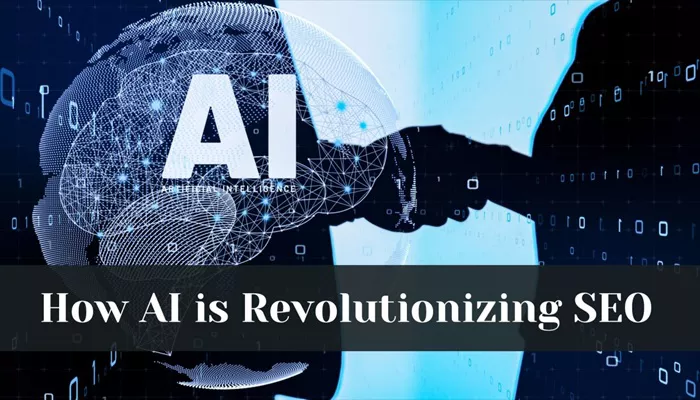In the evolving world of digital marketing, artificial intelligence (AI) is rapidly transforming how companies approach search engine optimization (SEO), particularly in the area of keyword research. No longer reliant on traditional methods of brainstorming and static data analysis, marketers are increasingly turning to AI to better understand user behavior, predict trends, and drive organic visibility.
Industry experts say AI is enhancing SEO by enabling marketers to shift from simply identifying popular search terms to interpreting user intent, identifying emerging patterns, and creating content tailored to real-time user needs. In competitive urban markets such as Toronto, agencies utilizing AI tools are providing their clients with a measurable edge in online performance.
From Static Metrics to Smart Insights
Historically, keyword research involved analyzing search volume, cost per click (CPC), and competition level to choose keywords. But this process, while foundational, was limited in scope. It often failed to account for real-time trends, shifts in user behavior, and the semantic relationships between terms. As a result, businesses risked targeting outdated or overly broad keywords that failed to drive conversions.
AI is now filling that gap. By processing large-scale data and identifying subtle behavioral patterns, AI tools are delivering more strategic and timely keyword recommendations. According to digital analysts, this shift has elevated keyword research from a tactical task to a predictive and dynamic component of digital strategy.
Understanding Intent: AI and User Behavior
One of AI’s major contributions lies in interpreting the intent behind search queries. Using natural language processing (NLP) and machine learning, AI can distinguish whether a user is seeking information, attempting to navigate, or looking to complete a transaction.
This distinction allows marketers to develop content that meets specific needs. For instance, a search for “best DSLR cameras” may indicate purchase intent, while “how to use a DSLR” suggests informational interest. AI-driven tools help tailor content accordingly, improving both user engagement and conversion rates.
Predictive Analytics Reshape Planning
AI also enables predictive keyword research. Rather than reacting to existing trends, marketers can now anticipate what users will search for in the near future. Tools leveraging AI forecast keyword performance based on historical data, search patterns, and social media signals.
This capability is especially valuable for businesses preparing for seasonal campaigns, product launches, or trending topics. Analysts note that predictive keyword analysis allows brands to claim digital real estate before a topic reaches peak popularity, giving them an early advantage in search rankings.
Beyond Keywords: Building Semantic Clusters
Today’s search engines prioritize context and comprehensiveness over simple keyword matches. AI enhances this by mapping semantic relationships between terms, helping marketers identify supporting topics and latent semantic indexing (LSI) keywords that reinforce primary content.
For example, in a content strategy centered around “digital marketing,” AI tools might suggest thematically connected phrases such as “customer acquisition,” “conversion funnels,” and “email segmentation.” This deeper coverage not only boosts relevance but also strengthens a site’s authority in the eyes of search algorithms.
Competitive Analysis Gets an AI Upgrade
Understanding what competitors are ranking for—and where gaps exist—is a critical part of any SEO campaign. AI significantly accelerates this process. With the ability to scan and analyze hundreds of competitor web pages quickly, AI tools offer actionable insights on keyword usage, content performance, and backlink profiles.
This type of competitor gap analysis helps businesses uncover overlooked opportunities, enabling them to target niche keywords or create more comprehensive content on under-served topics. SEO consultants say this approach leads to more precise targeting and improved return on investment.
Integrating AI Into SEO Strategy
Experts recommend that businesses incorporate AI tools into their broader SEO efforts through platforms such as Ahrefs, SEMrush, Clearscope, and Google’s AI-enhanced services. But they stress that successful implementation depends not only on access to technology, but also on strategic execution.
A structured, AI-informed SEO roadmap often includes segmenting keywords by the stages of the customer journey, matching content formats to user intent, and continuously updating keyword data to reflect market shifts. Many agencies now advocate for the use of pillar pages—comprehensive content hubs supported by semantically linked subpages—to enhance structure and authority.
Human Expertise Still Matters
Despite the efficiency and intelligence AI brings to the table, marketing professionals emphasize that it cannot replace human creativity or strategic thinking. Interpreting AI-generated data, crafting compelling narratives, and preserving brand voice are tasks that still require human insight.
“AI can provide the map, but it still takes a person to navigate the road,” said one SEO strategist. “The best results come from collaboration between technology and experienced marketers who understand the emotional and psychological dimensions of audience engagement.”
Real-World Impact in Competitive Markets
Nowhere is the transformation more evident than in dense, competitive environments like Toronto. With businesses vying for limited digital space, general keyword targeting is often insufficient. Local agencies leveraging AI have demonstrated success in identifying hyper-local keywords, tracking shifts in consumer behavior, and optimizing content for voice and mobile search.
By tailoring strategies to Toronto’s diverse and tech-savvy consumer base, these firms are helping clients improve visibility and generate more qualified leads.
Conclusion
The role of keyword research in SEO is no longer confined to compiling lists of popular terms. AI is pushing the discipline into a new realm—where insights are predictive, strategies are personalized, and results are data-driven.
For businesses aiming to strengthen their digital presence, adopting AI-powered tools and partnering with knowledgeable SEO professionals is not just an option—it’s becoming a necessity. In fast-moving markets, staying static is the fastest route to irrelevance. Those who embrace AI in keyword research today are setting the stage for tomorrow’s digital success.
Related Topics
- Understanding and Improving Dwell Time in SEO
- In 2025, User Engagement Overtakes Keywords in SEO Rankings
- 2025 SEO Checklist: 14 Key Tips to Boost Your Rankings

